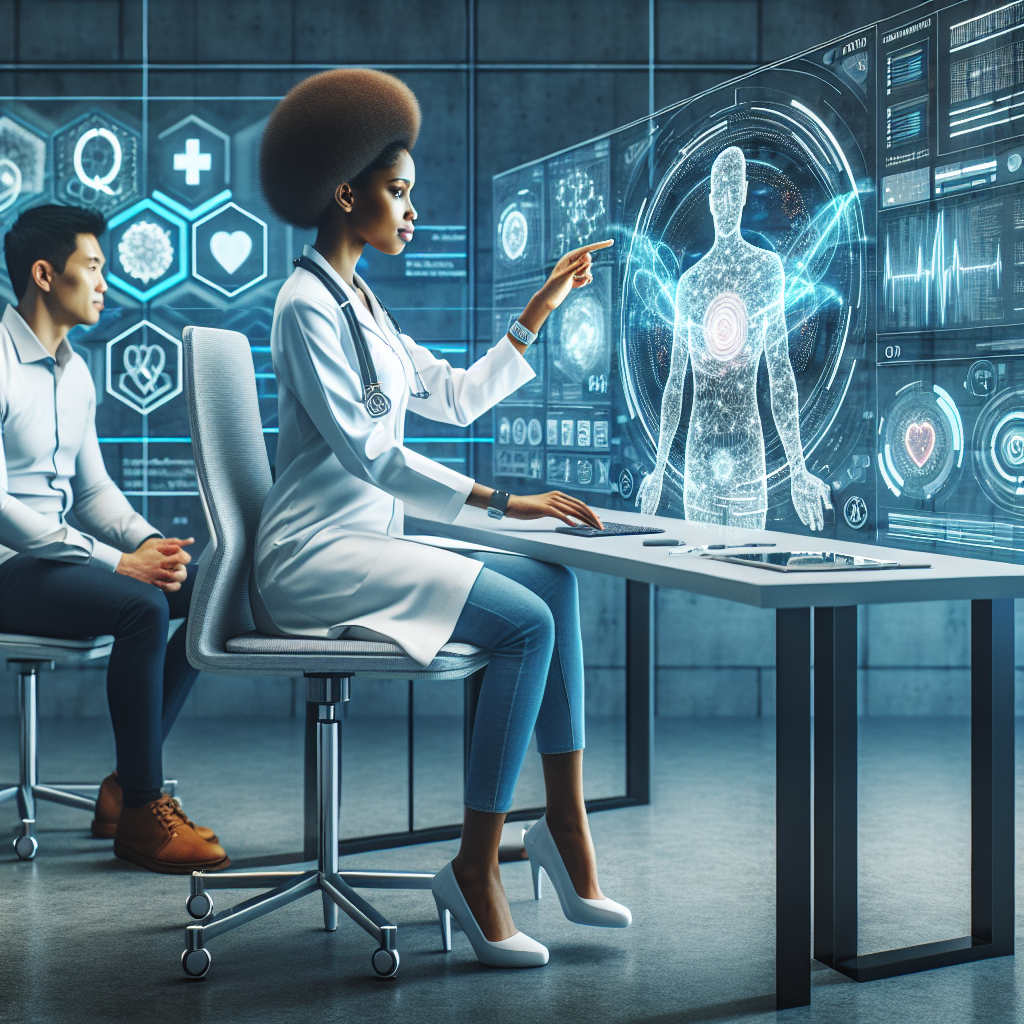Artificial Intelligence (AI) has been making significant strides in improving various industries, and one of the areas where it has shown great potential is in healthcare. AI technology has the ability to revolutionize the healthcare industry by improving the quality of patient care, reducing medical errors, and increasing efficiency in healthcare delivery. In this article, we will explore how AI is transforming healthcare and the ways in which it is enhancing the quality of care provided to patients.
One of the key ways in which AI is improving healthcare quality is through its ability to analyze large amounts of data quickly and accurately. AI algorithms can process vast amounts of patient data, including medical records, lab results, and imaging studies, to identify patterns and trends that may not be readily apparent to human healthcare providers. This can help healthcare professionals make more informed decisions about diagnosis and treatment, leading to better outcomes for patients.
AI can also help healthcare providers make more accurate and timely diagnoses. By analyzing patient data and comparing it to a vast database of medical knowledge, AI algorithms can help identify potential diseases or conditions that may have been missed by human healthcare providers. This can lead to earlier detection and treatment of illnesses, ultimately improving patient outcomes.
In addition to diagnosis, AI can also be used to personalize treatment plans for individual patients. By analyzing patient data and genetic information, AI algorithms can help healthcare providers determine the most effective treatments for each patient based on their unique characteristics. This personalized approach to healthcare can lead to better outcomes and reduced side effects for patients.
AI technology is also being used to improve the efficiency of healthcare delivery. For example, AI-powered chatbots can assist patients in scheduling appointments, answering questions about medications, and providing follow-up care instructions. This can help reduce the burden on healthcare providers and improve the overall patient experience.
Another area where AI is making a significant impact is in medical imaging. AI algorithms can analyze medical images, such as X-rays, MRIs, and CT scans, to help healthcare providers identify abnormalities and make more accurate diagnoses. This can help reduce the need for invasive procedures and unnecessary tests, leading to cost savings and improved patient outcomes.
AI technology is also being used to predict patient outcomes and prevent adverse events. By analyzing patient data and identifying risk factors, AI algorithms can help healthcare providers predict which patients are at risk for complications and take proactive steps to prevent them. This can help reduce hospital readmissions, improve patient safety, and ultimately save lives.
Overall, AI has the potential to revolutionize healthcare by improving the quality of care provided to patients. By analyzing data, making accurate diagnoses, personalizing treatment plans, and improving efficiency, AI technology can help healthcare providers deliver better outcomes for patients and reduce healthcare costs.
Frequently Asked Questions (FAQs):
Q: How is AI being used in healthcare?
A: AI is being used in healthcare in a variety of ways, including analyzing patient data, diagnosing diseases, personalizing treatment plans, improving the efficiency of healthcare delivery, and predicting patient outcomes.
Q: Can AI replace human healthcare providers?
A: While AI technology can assist healthcare providers in making more informed decisions, it is not meant to replace human healthcare providers. AI algorithms can help healthcare providers make more accurate diagnoses and personalized treatment plans, but ultimately, human judgment and expertise are still needed in patient care.
Q: Is AI technology safe and secure in healthcare?
A: AI technology in healthcare is subject to strict regulations and guidelines to ensure patient data privacy and security. Healthcare organizations must comply with regulations such as HIPAA to protect patient information and ensure the safe use of AI technology.
Q: How can patients benefit from AI in healthcare?
A: Patients can benefit from AI in healthcare by receiving more accurate diagnoses, personalized treatment plans, and improved outcomes. AI technology can help healthcare providers deliver better care and improve the overall patient experience.
Q: What are some examples of AI applications in healthcare?
A: Some examples of AI applications in healthcare include medical imaging analysis, predictive analytics, chatbots for patient engagement, personalized medicine, and remote monitoring of patients.
In conclusion, AI technology has the potential to transform healthcare by improving the quality of care provided to patients. By analyzing data, making accurate diagnoses, personalizing treatment plans, and improving efficiency, AI can help healthcare providers deliver better outcomes for patients and reduce healthcare costs. As AI continues to advance, we can expect to see even more innovations in healthcare that will further improve patient care and outcomes.

